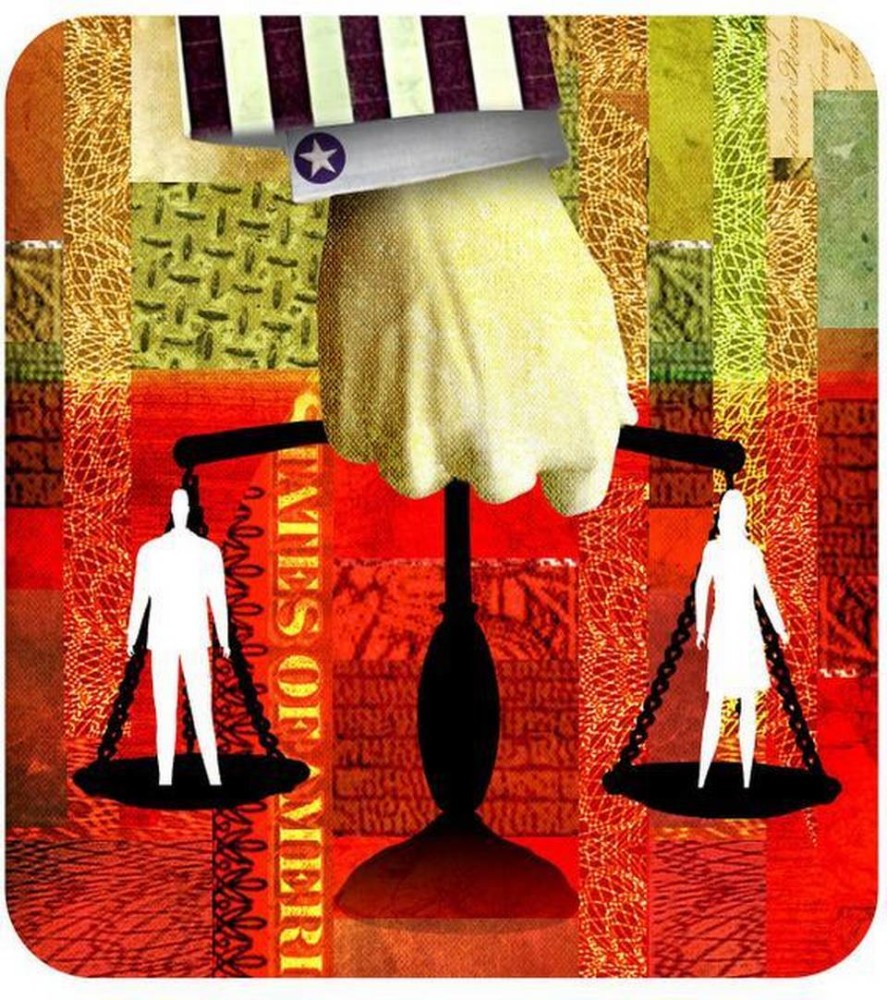By Thomas Content
Milwaukee Journal Sentinel.
In the past 10 years, little progress has been made at closing the global gender gap between men and women in the workplace, and corporate leaders surveyed by Milwaukee-based ManpowerGroup Inc. believe it will take another generation to achieve parity.
Those findings highlight two new reports discussed Friday in Davos, Switzerland, on why it’s so tough to close the gender gap.
An entrenched male culture is the biggest barrier to making progress, ManpowerGroup found in its report, released at the World Economic Forum. The report says millennials are optimistic that their generation will be the one that achieves parity. But not anytime soon, the company’s survey found. Millennial women say it will take 22 years to achieve parity.
A separate report, published by The World Economic Forum on the Industry Gender Gap, found women account for 30% of the workforce across multiple industries, even though they outnumber men in attending universities. Women earn 32% less than men in comparable positions, the survey found.
According to the survey, just 9% of global CEOs are women. Females make up 28% of corporate boards, 15% of senior management functions and 25% of midlevel roles.
“Can we afford to wait another generation? And do we risk losing out on human potential if millennial females become disillusioned with the corporate world? Women are already voting with their feet. Almost half of all small and medium-sized enterprises are majority or equally-led by women,” ManpowerGroup’s report says.
Companies and other organizations need to use the principle of “conscious inclusion” and not limit women’s roles to just certain parts of the organization, said Jonas Prising, chairman and chief executive of ManpowerGroup, during a Davos session Friday on gender parity.
“Women tend to be clustered in certain professions or certain functions, and we believe for there to be more female leaders at the helm of companies — and there are only 4% of (U.S.) companies led by a female CEO — you need to make sure you have women in technical roles and business roles and P&L (profit-and-loss) roles,” Prising said.
Social norms in a corporate culture can work against doing so, and corporate leaders need to move deliberately and purposefully to enable women to “move into the pipeline” for leadership roles, he said.
Women hold one-third of board seats at ManpowerGroup, up from zero when former CEO Jeff Joerres made a personal commitment to add women to the board. Under Prising, one-third of top executives are female, and one-half of what the company calls its “emerging leaders” are women, the ManpowerGroup report said.
Prising spoke along with Melinda Gates of the Gates Foundation and Facebook Inc. Chief Operating Officer Sheryl Sandberg, as well as Canada’s Justin Trudeau, who last year appointed the world’s first gender-balanced cabinet after he won election as prime minister.
“Men have to be part of this conversation. We shouldn’t be afraid of the word feminist,” Trudeau said. “Men and women should use it to describe themselves anytime they want.”
Inequity starts at home, given the unwritten but still persistent expectations about women’s roles as family caretaker and CEO-of-the-house, said Gates. Mothers, not fathers, are often those leaving work to take their child to the doctor, she said.
Changing that will take replacing maternity leave policies with family leave policies, said Gates, adding just two of 50 U.S. states have family leave policies.
“There’s a toddler wage gap in the U.S.,” added Sandberg. “Boys are taking out the trash. It takes less time than cleaning the dishes, and they’re getting higher allowances. We start out in our homes with these very different expectations, and the time spent on these tasks is incredibly important and very different.”
Alex Molinaroli, chairman and CEO of Johnson Controls Inc., is also in Davos this week, and serves as a trustee for the World Economic Forum’s focus on gender parity. Glendale-based Johnson Controls provides incentives to managers who meet certain gender targets, he wrote in a column posted on the forum’s website.
“Although gender quotas are often perceived negatively by men and women alike, they’re a stimulant for change,” Molinaroli wrote. “It’s not about filling a seat, it’s about starting the conversation, bringing awareness and driving change.”
Also Friday, 10 companies, including Barclays Plc, Twitter Inc., PricewaterhouseCoopers and Tupperware Brands, announced they are joining forces with the United Nations to raise awareness that not enough is being done to help women reach parity in the global workplace.
Bloomberg News contributed to this report.














































































































































































































































































































































































